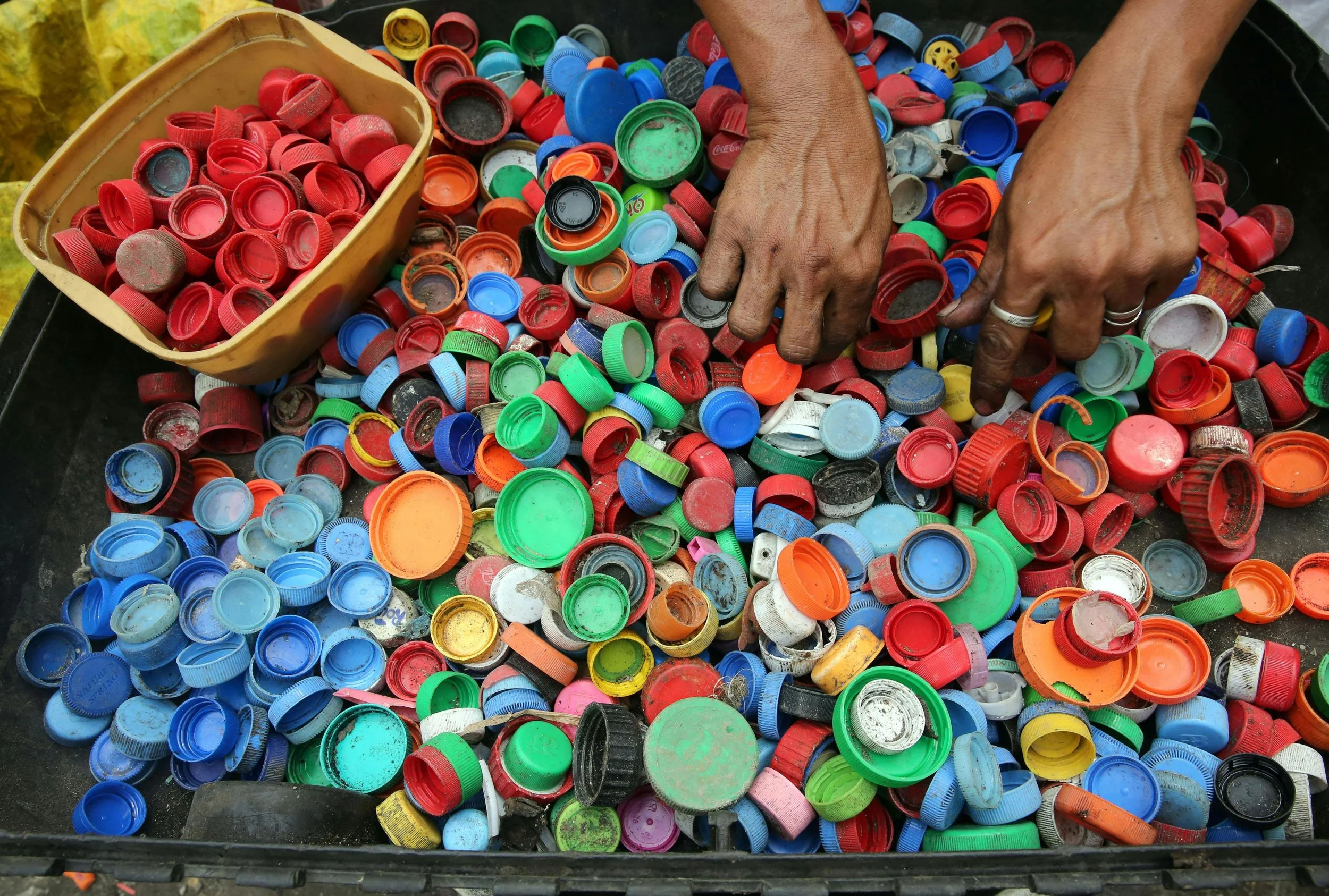There, I said it #1: recycling is pointless
TLDR: We’ve spent two decades sorting our tins and plastics, but when half the world isn’t even trying, it’s hard not to wonder if it’s all for nothing. Perhaps real change starts before the bin — by consuming less in the first place.
Do you remember the first time you rinsed out a plastic container and put it in a designated bin? Me neither, but now when I do it, I can’t help but wonder if it’s a bit pointless.
Separating our glasses from our cardboards from our tins has become as much part of British life as putting the kettle on or commenting on the weather.
While it feels like my mum has been telling me to rinse out my plastics since the beginning of time, household recycling – the way we know it – is still a fairly new phenomenon.
After much campaigning from organisations like Friends of the Earth, the UK Government introduced the Household Waste Recycling Act in 2003. This mandated that local authorities in England and Wales* provide households with separate collections for at least two types of recyclable waste by 2010. The goal: to make recycling as easy as putting the bins out by making it so you could… Well, put your recycling out with the bins. And, fair play, they delivered.
In 2000-01, only 12% of all local authority-managed waste was recycled or composted in England. By 2018, this had leapt up to 42.7%. (Gov UK) While it meant you had to have multiple kitchen vessels, it also afforded neighbours something to connect over. If it wasn’t asking one another what colour bin was out this week, it was bitching about Graham at number 22 who keeps putting his pissing cardboard in the black bin. Not to mention the environmental benefits or whatever.
Obviously recycling isn’t pointless
Now, I don’t know where you’ve got the idea that I think recycling is pointless because of course it isn’t.
The introduction of the Household Waste Recycling Act in 2003 – and all the legislation that’s followed it, from the Environment Act to Scotland’s new Circular Economy Act – has had a tangible impact on the UK’s environmental progress.
In the twenty years since that first Act, England has nearly doubled its recycling rates. Across the UK, household recycling has jumped by around 30 percentage points, smashing the 2005 target of 25% and reaching roughly 44% in 2022. We now rank 14th in the world for waste recovery on the Environmental Performance Index – a measure of how effectively countries manage and recover their waste.
It’s excellent progress – we’re now recycling close to half of our waste in the UK. Of course, there’s still work to be done, but it’s a valiant start.
So what’s my problem?
The United States of America
I recently visited one of those 50 United States and was blown away by the lack of recycling efforts.
But before I go on my rampage, let me be clear: I was in one part of one state – I’m not saying they’re all the same. What I am saying is the fact that even one part of one state could be so behind the times with regards to recycling was a shock to the system.
It really did feel like going back in time – and don’t get me wrong, for a day, it was amazing. I used free plastic bags, I drank from plastic straws (free from the flaccid fears induced by their cardboard twins) and I didn’t have to rinse out anything, I just flung everything in the trash without a care in the world.
Until I remembered I do care about the world and felt terrible and started fishing things out of the trash to rinse and recycle them, only to realise that piling them neatly in the corner wasn’t going to aid in them being recycled when there were no recycling facilities.
We all know the United States is large – but I didn’t realise it’s actually forty times the size of the UK in terms of land area. In terms of population, it’s five times larger. In terms of waste, each person in the United States creates double the amount of municipal solid waste compared to the UK. And while all of this might make their waste problem more complex, it also makes their inaction harder to excuse.
With great power comes great responsibility
The United States has no national recycling mandate, instead programs vary by state and local jurisdiction. Only 12 states ban or levy fees on plastic bags; only 7 have packaging-focused extended producer responsibility (EPR) rules; only 6 have broad household or business recycling mandates.
The United States is number one in the world for GDP; five of the top six tech firms in the world call it home; it’s a leader in the fields of AI, space, and spends more than any other country in the world on R&D; it has UN veto power, and remains the most influential global power across pretty much everything. It’s a mammoth, a force, an influence like almost no other in our world.
And yet, this behemoth’s recycling (and composting) rate is only ~32.1 percent; its EPI waste recovery rate score places it 30th in the world. Five times the amount of people, each creating double the waste; no national recycling mandate, and only half of the states with any form of mandatory recycling.
It makes my general concern about rinsing my yoghurt pots feel fairly ridiculous. What difference does it make if I can’t bring myself to wash my dog food tins to recycle them when entire states don’t have recycling capabilities?
It isn’t pointless, but it’s not the point
As one person in one city (Glasgow) in one country (Scotland) on one land mass (the UK), I feel so small and useless on such a massive planet. And that’s how I picture the UK (sorry) up against the might of the States. It’s like using a thimble to bail water out of a rowboat when someone else is pouring it in with a vat.
But, the thimble does still get water out – right? So it’s not without impact… it’s just smaller than it would be if we were all working together.
That positive note was how I wanted to end this article – but recent news about the working conditions at factories overseas where the UK sends a lot of its recycling put a dampener on that (to put it mildly). Not to mention the new research that found the global recycling rate has decreased for the eighth year running.
So, where does that leave us in the UK? Most of America doesn’t have to worry about where its recycling went because it never sent it – but we did, and now this.
If we try to recycle the recyclable waste that we create, does that make more business for horrible factories in other countries that endanger the people that work there? Is it even better for the environment? And if it is, should we still do it if it’s hurting other humans?
I don’t have an answer (just one person in one city, remember) but I’ve personally landed on this: recycling isn’t pointless, but it also isn’t the only point. There’s a lot of ways we can all do our bit for the planet – with and without Recycling Acts.
For me, I’m going to find out if there’s a way to recycle on a local level, so I’m not just sending it to be someone else’s problem. Beyond that, I’m just going to try and use less and, where I can’t use less, re-use. From egg cartons on the book shelf to giving plastic bags a thousand outings, this is how I’m going to try and do my bit – and I invite you to do the same. Especially if you’re American.
*This act did not extend to Scotland. Instead, Scotland has the Waste (Scotland) Regulations 2012. We may have been late to the party, but we’ve caught up: in 2022, the recycling rate for England was 43.3% and Scotland was just behind with 42.1%; Northern Ireland was 49.2% and Wales showed us all up with 56.9%. Go on, dragons. (UK Gov)




